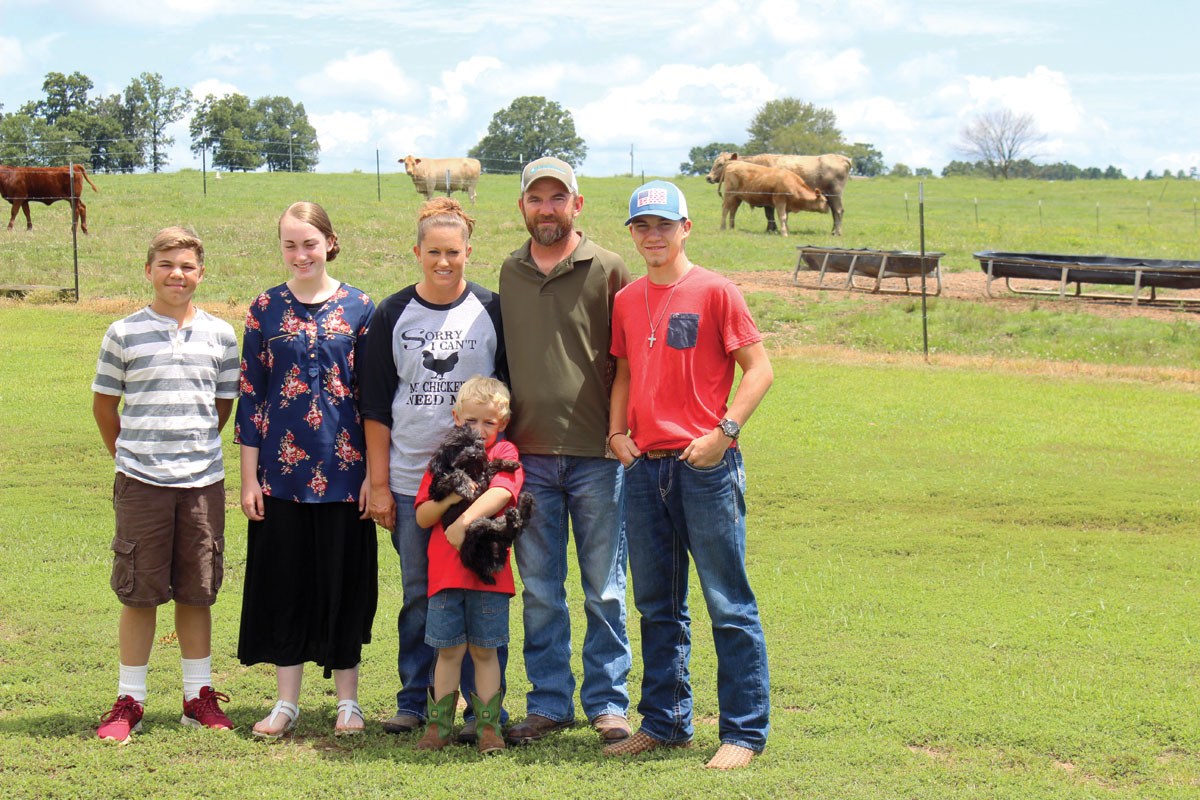 Daniel and Katie Beal made their way to the Ozarks and agriculture
Daniel and Katie Beal made their way to the Ozarks and agriculture
Together with their two daughters, Evelyn and Annie, Daniel and Katie Beal manage Blackberry Hill Farm and Orchard in Highfill, Ark.
Their farm consists of 80 rolling acres, of which 50 acres are dedicated to their sheep, horses and pastured pigs. For the Beals, their farm is all about finding enterprises that work for them and differentiate their farm in an increasingly crowded market for local foods.
The Beals’ journey to farming was an unconventional one, as Daniel and Katie both originally received degrees in music before changing career paths. Daniel eventually completed his engineering degree and Katie her medical degree before they found their way to their farm in the Ozarks. They both say they draw on this experience in higher education to inform the daily decision-making on the farm.
“We have no formal agricultural education,” Daniel said. “But we try to utilize resources that are peer-reviewed and data driven as opposed to relying only on anecdotal materials.”
Daniel and Katie credit a number of organizations with providing them the research needed to build a successful farming operation, citing Cornell University, the University of Arkansas, and the National Center for Appropriate Technology (NCAT) as excellent resources for beginning farmers. Daniel says NCAT, which has a regional office in Fayetteville, Ark., has been particularly helpful, with staff members Linda Coffey, Margo Hale and Guy Ames all assisting in the planning and research for the farm’s two main enterprises – the sheep flock and the orchard.
Choosing Sheep
The Beals, who knew from the beginning that they would need to find a livestock enterprise that could be profitable at a smaller scale, eventually chose hair sheep. “With 50 acres of pasture, we knew we weren’t going to be sustainable with a cow/calf operation,” Daniel said. While they did attempt a small experiment with goats early on, they quickly found sheep were a better fit. “In farming, things migrate toward what you enjoy – and sheep work for us.”
The sheep flock consists of 50 Katahdin breeding ewes and several rams, with plans to eventually grow the herd to 100 ewes. The farm is working toward lambing every eight months, and the Beals frequently keep back replacement ewes while raising the ram lambs for meat processing. The Beals market their young livestock at auctions in Diamond, Mo., and Centerton, Ark., but prefer to sell directly to other farmers and ranchers in the area.
The farm’s most popular and successful venture is the retail cuts of lamb, which Daniel and Katie direct market to customers through their website and Facebook pages. While they don’t currently attend any regional farmers markets, the Beals do provide delivery of their products to customers within the Northwest Arkansas region. Daniel credited their success to supplementing the sheep flocks’ year-round forage with grain, which helps to create a milder and more pleasing flavor.
In caring for their sheep flock, the Beals rely on free choice mineral that is supplemented with vitamin E during gestation. Special attention is given to overcoming two of the more persistent issues with sheep production in the Southeast – parasites and hoof problems. Katie points to preventative care as a big part of controlling these issues.
“We pull all of the sheep in regularly and assess their FAMACHA and worm the ones that have evidence of anemia. We also check their hoofs and log that data.”
They then use that information to make decisions about which animals to cull, improving herd performance over time. Katie is careful to point out that they only worm sheep when absolutely necessary, and instead rely on genetics and culling to improve the parasite tolerance of their flock over time.
Planting for the Future
While sheep remain the economic center of the farm, the Beals have recently planted a small orchard to diversify and experiment with.
“We really wanted to just plant a few trees, and things got out of control,” Daniel said, as they now have more than 100 apple, pear and fig trees planted across the southern end of the farm. They are now in their second year of orchard development and expect small amounts of fruits to be available for sale to the public by 2020. For the Beals, working with the local environment was critically important in planning their orchard.
“We focus on varieties that grow really well in the Ozarks and will have heritage varieties like Arkansaw, Arkansas Beauty, Shannon, Tull and King David apples,” Daniel said.
The Beals hope their orchard will eventually become one of the few commercial orchards to market these older varieties to the public. For Daniel and Katie, the orchard is just another experiment-turned-business that has helped them adapt and grow on the farm.







